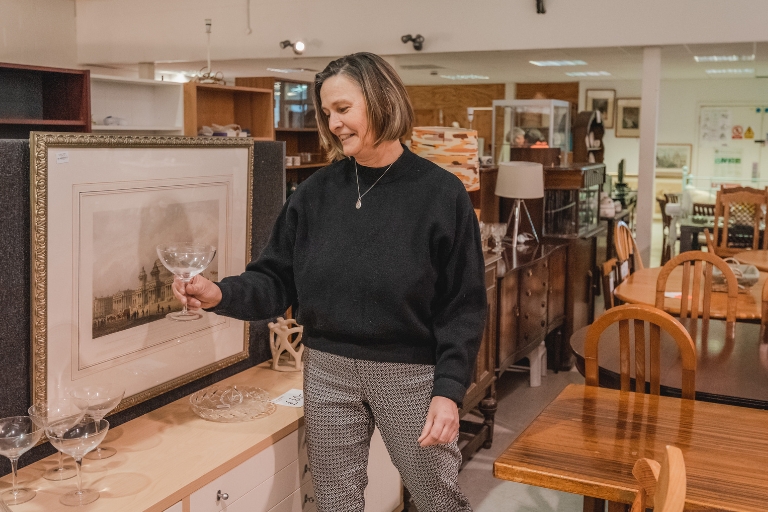Research at St Catherine’s
As well as being leaders in helping people when life comes full circle, at St Catherine’s Hospice we also excel at educating professionals in our field.
We aim to deliver pioneering standards of care at our hospice and in people’s own homes in our local community, but we know there’s always more we can do.
We want to make sure that the care we give is always the best it can be. In order to do this, we need to fully understand the needs of those we care for, and so from time to time we may offer people the opportunity to take part in research studies.
The aim of all our research is to improve the physical, practical, emotional and spiritual care we give to people affected by a terminal or life-limiting illness. So far, we have worked with patients, carers and staff to better understand many issues including:
- What really matters to people about their care at the end of their life
- How often people with cancer get oral symptoms, like mouth pain or a dry mouth, and how they can best be helped to cope with these symptoms
- How illness affects people’s sleep
All our research is ethical and robust and we follow strict guidelines surrounding data protection and confidentiality principles. Health and social care research should always serve the public interest, which means that we have to demonstrate that our research serves the interests of society as a whole. We do this by following the UK Policy Framework for Health and Social Care Research.
Research FAQs
The process varies from study to study; if someone is interested in taking part in one of our research studies or a member of our team approaches them to ask if they would be interested, they will then be given a patient information sheet. This outlines what the research study is about and what it will entail for someone taking part.
The research team will then assess if the person meets the criteria for the research study; research studies have inclusion and exclusion criteria to ensure that the researchers will be able to answer the research question. If someone meets the criteria and agrees that they would be interested in taking part in the research study, a member of the research team will go through the study process with them and receive informed consent before proceeding any further.
It is up to each individual whether they choose to take part or not in research; taking part in research is completely voluntary. If someone chooses to take part in research, they will be given a patient information sheet to keep, along with all the details of the research study. If they then decide to continue to take part, a member of the research team will receive informed consent. If at any point during the research study someone decides they no longer want to take part, they can withdraw at any time without a reason. This will not affect anyone’s normal standard of care.
We use personally-identifiable information to conduct research to improve health and care. As a charity providing care to terminally ill people and those close to them, we have a legitimate interest in using information relating to people’s health and care for research studies when they agree to take part in a research study. This means that we will use someone’s data, collected in the course of a research study, in the ways needed to conduct and analyse the research study. People’s rights to access, change or move their information are limited as we need to manage this information in specific ways in order for the research to be reliable and accurate. If a person withdraws from the study, we will keep the information about them that we have already obtained. To safeguard people’s rights, we will use the minimum personally-identifiable information possible.
If a person wishes to raise a complaint on how we have handled their personal data, they can contact our Quality and Risk Manager who will investigate the matter. If they are not satisfied with our response or believe we are processing their personal data in a way that is not lawful they can complain to the Information Commissioners Office (ICO).
Our Head of Clinical Quality and Governance is Steve McCourt. Contact Steve at: SteveMcCourt@stch.org.uk








